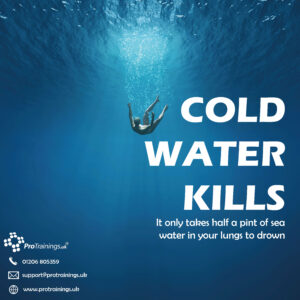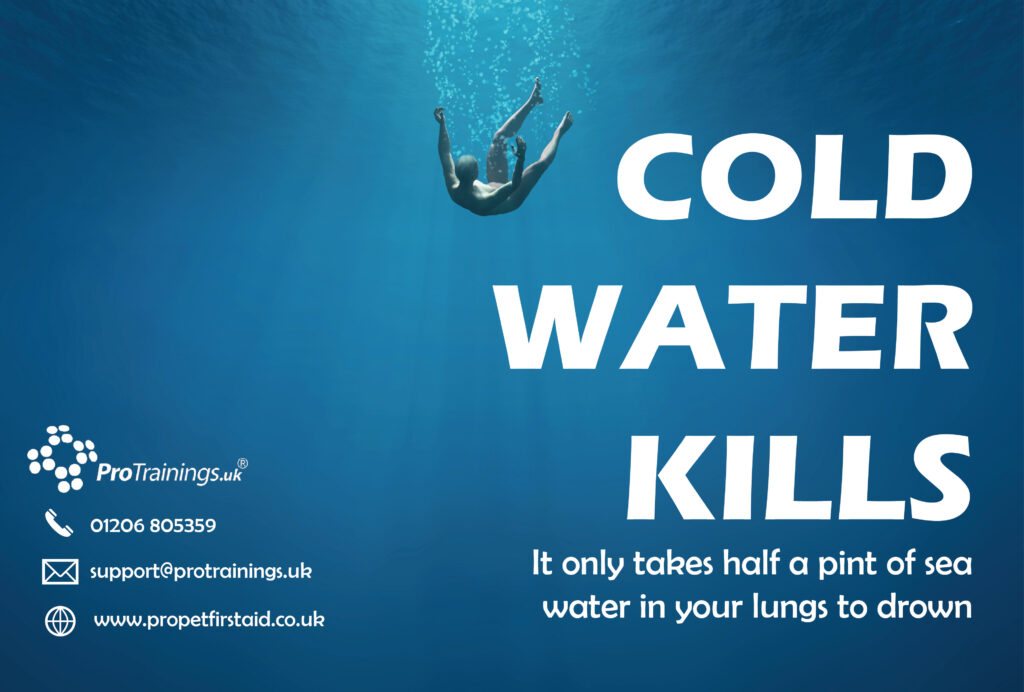
Cold water can seriously affect your breathing and movement and the risk is significant most of the year. Cold water shock causes the blood vessels in the skin to close, which increases the resistance of blood flow. Cold water shock also causes the heart rate to increase. As a result of this, the heart has to work harder and your blood pressure goes up. Cold water shock can therefore cause heart attacks, even in the relatively young and healthy.
Cold water causes a sudden cooling of the skin, which also causes an involuntary gasp for breath. Breathing rates can change uncontrollably, sometimes increasing as much as ten times. All these responses contribute to a feeling of panic, which therefore increases the chance of inhaling water directly into the lungs.
It only takes half a pint of seawater to enter the lungs for a fully grown man to start drowning. If you do not get medical care immediately, you could die.
There are some ways to deal with cold water shock and minimise the risk.
If you enter the water unexpectedly, take a minute. The initial effects of cold water pass in less than a minute, so it is important not to try and swim straight away. You should relax and float on your back so that you can catch your breath and try to get hold of something that will help you float. You should also keep calm and then call for help or swim for safety if you are able to.
If you are planning to go swimming and to enjoy the water, it is important to check the conditions, including the water, before heading to the coast. You should wear a wetsuit of appropriate thickness for the amount of time you plan to spend in the water and the type of activity you are doing. You should also wear a flotation device. A flotation device will greatly increase your chances of making it through the initial shock.
For more information on ProTrainings courses, see www.protrainings.uk or for equipment visit www.first-aid.online.co.uk. You can call us on 01206 805359 or email support@protrainings.uk.
